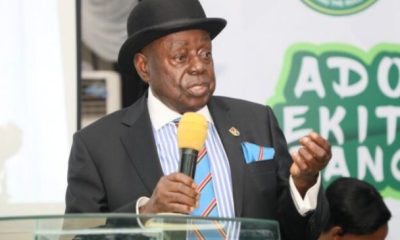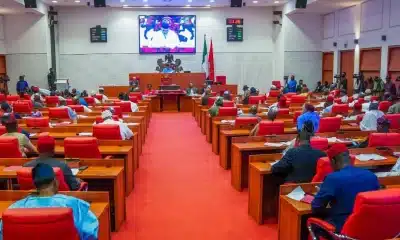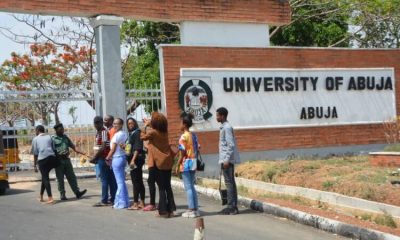Nigeria News
Full List: Tinubu Govt Licenses 11 New Universities In Nigeria

President Bola Tinubu’s government has, through the National Universities Commission (NUC), issued operational licenses to 11 newly sanctioned private universities.
During the presentation held in Abuja on Wednesday, the Executive Secretary of the NUC, Prof. Abdullahi Ribadu, emphasised the increasing significance of private universities as essential partners to public institutions, especially in addressing the educational needs of Nigeria’s young population.
Ribadu highlighted that since the liberalisation of university education in 1999, private universities have greatly enriched the country’s academic environment.
Naija News understands that from a total of 49 universities in 1999, of which 23 were private, Nigeria now has 298 universities, with 159 (53.3%) being privately owned.
This growth has been driven by heightened involvement from the private sector, he stated. He further clarified that the licenses are valid for three years, during which the institutions must adhere to stringent quality standards.
The provisional status will be closely monitored by the NUC, with full licenses being awarded only after a comprehensive assessment of each institution’s adherence to regulatory requirements.
He noted that to ensure readiness for academic operations, a mandatory resource verification exercise would be conducted for all academic programmes.
Speaking, the Minister of Education, Dr Tunji Alausa, said this would expand access to quality tertiary education.
Alausa said the importance of this initiative is as a cornerstone of the Nigerian Education Sector Renewal Initiative, designed to restore the glory of Nigeria’s educational system.
“This ceremony is not only a celebration of your achievements, but also a renewed call to action in building a future-ready and globally competitive Nigerian university system,” he said.
He emphasised the importance of directing Nigeria’s higher education toward priority fields, such as STEMM (Science, Technology, Engineering, Mathematics, and Medicine).
“Nigeria has more than enough social science graduates. What we need now are problem-solving graduates with life skills who can drive industries, build infrastructure, and improve lives.
“We must acknowledge an uncomfortable truth: while we now have 159 licensed private universities, too many are failing to meet the quality standards Nigeria demands,” he said.
Alausa stressed that licensing should be meaningful and effective rather than merely symbolic.
He stated that the NUC is conducting an extensive evaluation of quality assurance processes to guarantee that all accredited institutions, both public and private, function as authentic centres for education, innovation, and research.
Additionally, he urged private universities to work together and establish international partnerships, highlighting Nigeria’s potential to become a centre for global educational collaborations.
He added: “Private universities must rise to the challenge of delivering high-quality, relevant education that meets the demands of a modern economy.
“With support from regulatory bodies and a renewed commitment to excellence, the newly approved institutions are expected to play a transformative role in shaping the nation’s next generation of leaders and innovators.”
In his remarks, Tony Iredia, Proprietor, Tonnie Iredia University of Communication, Benin, pleaded with the federal government to ensure the moratorium period is not long.
Iredia also said that Nigerian universities might not be doing well in research as a result of poor communication of research work.
The newly licensed universities are New City University, Aiyetoro, Ogun State; Lens University, Ilemona, Kwara State; Kevin Ezeh University, Mgbowo, Enugu State; Monarch University, Iyesi Ota, Ogun State; Tonnie Iredia University of Communication, Benin, Edo State; Isaac Balami University of Aeronautics and Management, Lagos State, and Eranova University, Kuje, FCT.
Others are Southern Atlantic University, Uyo; University of Fortune, Igbotako, Ondo State; Minaret University, Ikirun, Osun State; and Abdulrasaq Abubakar Toyin University, Ganmo, Kwara State.












